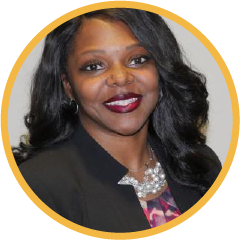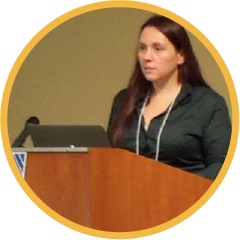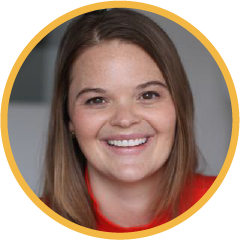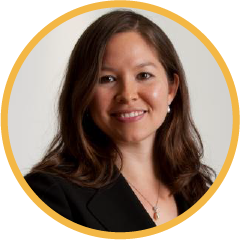5 Pieces of Advice From Leading Women in Tech
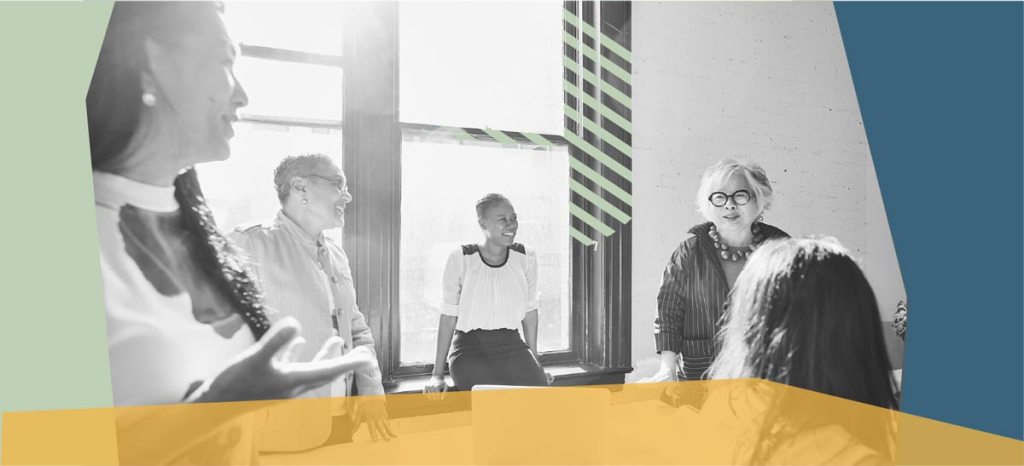
Women in the tech industry are likely to be underrepresented at every stage of their professional career. Female graduates receive 1 in 5 computer science bachelor’s degrees, according to the National Center for Education Statistics. This imbalance reverberates through the workplace, where women often find themselves in the minority and shut out of leadership opportunities.
It also leads to distinct challenges for women of color and members of other underrepresented groups. In a 2019 survey of women in tech by Ivanti, more than 60% of respondents cited equal pay and benefits as a challenge in their workplace. The same data also indicates that “being taken seriously due to gender perception” is the most common issue these women face.
The UC Berkeley School of Information hosted four female faculty panelists to discuss the future of data science, cybersecurity as well as the importance of women’s voices and experiences in tech.
The conversation was facilitated by Morgan Ames, assistant adjunct professor and associate director of research at the UC Berkeley Center for Science, Technology, Medicine and Society and spanned several topics, including empowering women as decision makers, finding positive mentors, and confronting imposter syndrome.
Continue reading to learn more about UC Berkeley’s I School faculty, their experiences, and what lessons they want to share with women in the field.
Meet the Faculty
On Finding Your Passion
The different opportunities and paths within tech can seem endless and perhaps overwhelming for those navigating their way through. The professors shared their experiences searching for, and eventually finding, the path that made the most sense for them.
Explore every opportunity.
“Try everything, do everything, and don’t be afraid to change your mind,” Abdullah recommended. She recounted her own experience trying to find the career fit for her — a journey that took her from radio DJ to mathematics at the National Security Agency (NSA).
A college professor gave her great advice: If you don’t like something, you can always change your mind. “I was young, and I wanted to do something great, but I just didn’t know what the great thing was,” Abdullah said. “The world is so big, and there’s not one path to do anything.”
Understand that not everyone needs a 20-year plan.
Early in her career, Moore was asked by a former manager to come up with a professional roadmap for the next 20 years. But that long-term plan was disrupted when she didn’t enjoy the first few steps.
Moore pointed out that very few people know what they want to be from day one. And it’s not always realistic to plan your life as if you do know.
“I think a far better approach is to experiment and figure out what it is that you really enjoy,” she said. “Surround yourself [with] supportive people, good leaders, and mentors who can support you.”
Additional Reading
On Finding Mentors
There are organizations devoted to tech mentorships among women, but informal mentorship networks bring their own rewards and challenges. The panelists discussed what they consider when searching for mentors and how they initiated those relationships.
Redefine the typical mentor-mentee relationship.
The traditional relationship of monthly in-person coffee is not the only successful option for strong mentorship. Diverging from more rigid pathways also leaves room for an expansive network full of diverse thoughts, experiences, and people.
“It can be a one-time conversation. It can be emails. It can be over social media. We have so many ways to engage with people,” Fischer said. “Don’t limit yourself to someone who’s going to meet with you once a month and sort of have some more strategic conversations.”
Push back against the fear of rejection.
Once you find people you want to learn from, the next step is working up the courage to ask for their time. Schioberg said persistence and confidence are key.
“Step forward and just voice it. If you see someone you like — you like their ideas or just their atmosphere that they create — go and ask and keep showing up,” she advised.
She also said that it’s important to separate people’s time or willingness to mentor from a judgement of you as an individual. “‘No’ is fine. If someone has no time or is not interested, that’s OK. That’s not a personal thing on you,” she said.
Additional Reading
On Empowering Decision Making and Agency
How can women in the workplace make their goals and choices clear for their coworkers? And how can they help other women do the same? The panelists discussed decision making agency and how it can be a team effort.
Give each other space to make decisions.
“There’s a big theme around women supporting women,” Lee said. But support does not need to come at the cost of someone else’s agency. “[It’s] also [about] not placing their own assumptions and biases in terms of what’s achievable based on their own personal experiences.”
For example, if a project needs a lead and a female coworker has a newborn, the empathetic response could feel like not burdening them with more work or additional decisions. However, the panelists agreed that it can be more empowering to say, “We just need to ask them.”
Set clear expectations and goals with your colleagues.
Abdullah said that to counteract others making decisions on her behalf, she is bold and vocal about what she wants.
“I find myself really being intentional with my own career and saying ‘This is what I want to do’ and going after those things — not waiting for someone to offer something to me,” she said. “I make it very, very known what my intentions are.”
Additional Reading
On Confronting Imposter Syndrome
Imposter syndrome is a psychological phenomenon in which high achievers attribute their success to luck instead of their own abilities, manifesting fear that they will be “revealed” as an imposter.
2020 KPMG Women’s Leadership data indicates that 3 out of 4 executive women surveyed have experienced some form of imposter syndrome in their career. When asked how women in tech can confront these feelings, Berkeley’s panelists shared their own observations from the classroom.
Express your insecurities.
Schioberg said that imposter syndrome is very real, and she sees it in both her male and female students. However, she notices women tend to vocalize it more. She also said this is better than staying silent, and she encourages the men in her class to do the same when they feel doubt.
Recommendations from experts align with Schioberg’s thinking. Acknowledging imposter feelings is a strong first step in combating them, and sharing with a trusted friend or mentor can help women feel less alone in their thoughts, according to Time Magazine.
Ask all your questions.
Students in Schioberg’s courses are familiar with the mantra, “There are no stupid questions.” She said that raising those questions is the point of the lesson and benefits the larger group.
“Say, ‘I don’t understand that.’ That’s why we are all here. Learning is exposing yourself a lot,” Schioberg said. “It’s making yourself vulnerable, and I try to foster this atmosphere of feeling secure and asking ‘stupid’ questions.”
Additional Reading
On Learning From Failures
Mistakes and failure are going to be a part of your experiences — whether through school, work, or your personal life. Each of the panelists emphasized these moments as inflection points and an opportunity to develop more.
Recognize that mistakes are learning experiences.
“You’re definitely going to fail, and you’re going to learn more from that failure than you are from any of your successes,” Fischer said. Failure is a universal experience. Everyone is figuring it out as they go along and working their way through the mistakes that come with the process, she says.
What’s been important for her is figuring out what she can take away from the mistakes she’s made. “When I look back in my life, I can remember the times I just didn’t do it right, but I was able to take that and learn from it,” Fischer said.
See that the scariest opportunities can be the most rewarding.
Fischer also explained that if you focus on resilience and growth, the most challenging parts of your day can be the ones that give you the most.
Abdullah agreed that mistakes shouldn’t be accompanied by guilt or fear. She shared this powerful phrase: “There’s no growth in your comfort zone, and there’s no comfort in your growth zone.”
The panelists emphasized that every mistake you learn from helps you increase the radius of your comfort zone and can help push you further.
Additional Reading
Additional Resources for Women in Tech
- Changing the Curve: Women in Computing
- The Power of Data: How Berkeley’s I School Is Bringing More Women into Data Science
- MIDS and MICS Alumni Mentorship Programs
- Berkeley School of Information Leadership Development Program
- Data Bytes Podcast, Women in Data
- Women Startup Challenges and Grants, Women Who Tech
- 20 Worthwhile Conferences for Women in Tech, CIO


